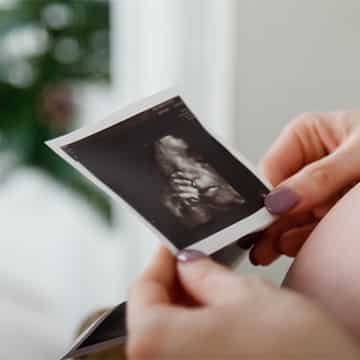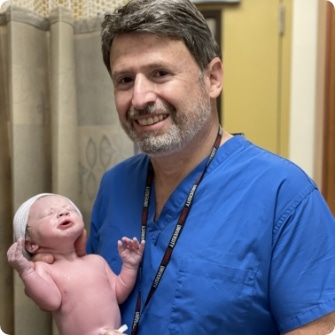
QUICK LINKS

What is an OB Ultrasound?
An obstetric ultrasound also called an OB ultrasound, is a medical test that produces pictures of a pregnant woman’s baby, uterus, and ovaries. This procedure is usually performed for all pregnant women at 20 weeks gestation to check that your baby is growing properly in your uterus. It is also performed for many other reasons, including checking the baby’s position in the womb, identifying the number of babies in the womb, first-trimester screening for chromosomal abnormalities, determining the gender of the baby, and more. This procedure is completely painless and non-surgical and is an important part of monitoring your pregnancy.
“I highly recommend Dr. Tepper!He is highly professional, experienced, and calming. My pregnancy and birth were such a positive experience thanks to him and his lovely staff at the clinic.”
SEE MOREThe OB Ultrasound Procedure
Before your ultrasound appointment, you may be asked to drink 4-6 glasses of water to fill up your bladder. This helps Dr. Tepper to see the baby better on the ultrasound. During your test, you will lie down on a comfortable exam table, and a water-soluble gel will be applied to your abdomen. A device called a transducer will then be used to send high-frequency sound waves into your body, which will bounce off internal structures, including your baby. These sound waves will then be received by the transducer and changed into pictures for you and your doctor to view.
In most instances, the ultrasound will be performed on the surface of the skin, though a transvaginal ultrasound may be required in some cases. In these instances, a probe will be inserted into the vaginal canal to produce more detailed images of the uterus and ovaries. This option may be used early on in pregnancy to determine how far along you are in your pregnancy or to diagnose a suspected problem.
Once the OB ultrasound is completed, the gel will be removed from your skin and you will be able to use the restroom. The test generally takes about 30 minutes to complete.

MEET DR. ALEX TEPPER
Welcome to my practice. Let me introduce myself and my practice philosophy. I am a board certified OB/GYN in practice for over 20 years and have been a solo-practitioner on the Upper East Side of Manhattan since 2000. All deliveries are performed at The Mount Sinai Medical Center where I went to medical school and at Lenox Hill Hospital.
When Should I Get an OB Ultrasound?
If you are pregnant and are not sure when you should receive an OB ultrasound, be sure to speak with your OBGYN. In general, women usually undergo ultrasounds following this schedule:
- Early pregnancy: The first ultrasound of your pregnancy may be performed around 6-8 weeks. During this ultrasound, your doctor will listen for your baby’s heartbeat, will determine a more accurate due date, tell you if you are pregnant with multiples, and will determine if an ectopic pregnancy is present.
- Dating ultrasound: If you did not receive an early pregnancy ultrasound, this may be your first ultrasound appointment, which is around 10-13 weeks of pregnancy. During this test, Dr. Tepper can predict your due date, reveal the number of babies in the womb, check for your baby’s heartbeat, and examine the baby’s basic anatomy.
- Anatomical survey: This OB ultrasound is performed between 18-20 weeks. During this test, your doctor will examine the anatomy of your baby, take measurements of the baby, and look for physical characteristics that may indicate any abnormalities.
BOOK AN APPOINTMENT
Whether you are a new or returning patient, Dr. Tepper can assess your concerns and discuss your options to find the most comfortable and convenient care for you. To get started, call our office to set up an appointment.
CALL FOR APPOINTMENTContact Us to Learn More
For more information about what to expect during your OB ultrasound, or to schedule an appointment with Dr. Tepper, contact our New York office today at (212) 828-0900.
Frequently Asked Questions
Can birth defects be seen on ultrasound?
Can having too many ultrasounds hurt the baby?
Do obstetricians do ultrasounds?
How do I prepare for an ultrasound?
How early can fetal abnormalities be detected?
How long does a prenatal ultrasound take?
Is an ultrasound considered routine prenatal care?
Is an ultrasound the same as a sonogram?
What abnormalities can be detected on an ultrasound?
What are signs of abnormal pregnancy?
What is the purpose of prenatal ultrasound?
Our Blog

Exploring the Benefits of Early Pregnancy Ultrasounds with Alex Tepper OBGYN

Your Guide to Gestational Diabetes for Expectant Mothers in New York City



